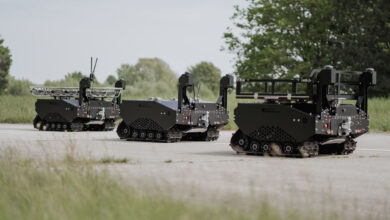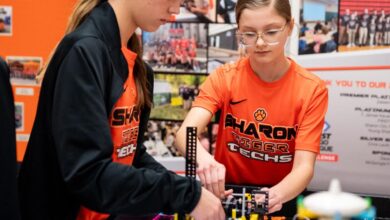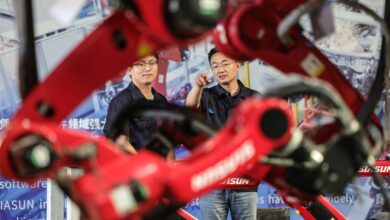Tech Enables Robots And Amputees To Feel Touch
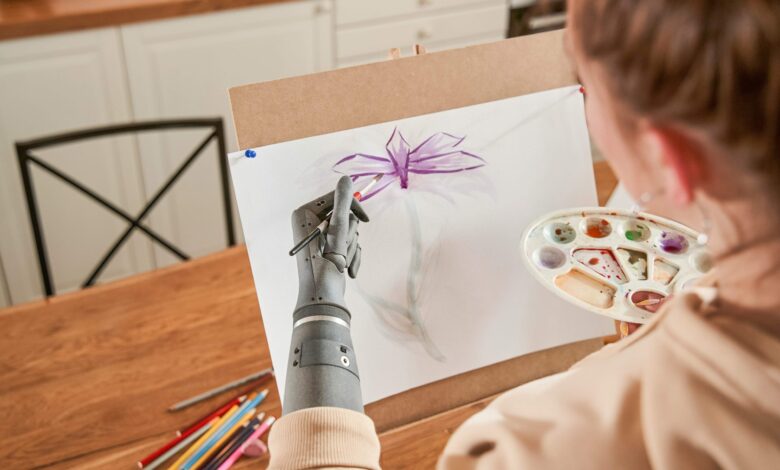
Researchers at Uppsala University and Karolinska Institutet have developed an artificial tactile system that could enable robots and prosthetic hands to sense touch as quickly as humans. TechXplore reports that this system mimics the human nervous system’s reaction to touch using electrical pulses.
This technology, inspired by neuroscience, can recognise various objects and surfaces, enhancing the natural and safe interaction between humans and robots or prosthetics. Researchers aim to develop this system further to detect pain, heat, and different materials, making it possible to create a complete artificial skin for robots.
This breakthrough could revolutionise prosthetic functionality and robot interaction, providing human-like touch sensitivity.
How Tech Is Enabling Robots To Feel Touch
ScienceDaily reported that research from Uppsala University and Karolinska Institutet may revolutionise how robots and prosthetic limbs feel touch. Published in the journal Science, this breakthrough could also help restore functionality for stroke patients.
Artificial Tactile System
The artificial tactile system mimics the human nervous system’s response to touch. It uses electrical pulses to process dynamic tactile information, allowing a prosthetic hand to feel like part of the user’s body. Zhibin Zhang from Uppsala University notes that their system can distinguish objects by touch as accurately as a blindfolded person.
The system is made of three main parts:
Electronic Skin (e-skin): Sensors detect pressure by touch.
Artificial Neurons: Convert analogue touch signals into electrical pulses.
The Processor: Processes the signals to identify objects.
In tests, it has recognised 22 different objects and 16 types of surfaces. According to Libo Chen, the technology could eventually differentiate materials like wood and metal and even detect pain and heat.
Applications and Future Development
This technology could improve human-robot interactions, making them safer and more natural by providing tactile feedback. It allows prosthetic hands to handle objects with human-like dexterity. Moreover, e-skin could be produced for entire robots, greatly enhancing their sensory capabilities.
Medically, the system could monitor movement dysfunctions from diseases like Parkinson’s and Alzheimer’s and aid stroke patients in regaining lost functionality. According to Zhang, it might even predict falls, triggering external muscle stimulation or assistive devices to prevent accidents.
This research opens new possibilities for both robotics and medical applications, marking a significant step forward in tactile technology.
Startups Revolutionising Prostheses
Several startups are dedicated to revolutionising prostheses, that strive to improve the lives of amputees.
These companies focus on developing advanced technology to improve functionality, comfort, and accessibility, providing innovative solutions that significantly benefit users.
Their mission is to transform prosthetic care and support amputees in leading more independent lives.
BioGrip

BioGrip develops advanced bionic technology to connect robotic systems to the human body through a wireless nerve-machine interface. This non-invasive sensor membrane collects nerve signals and uses AI to predict and execute natural movements.
BioGrip’s mission is to eliminate physical disability by enabling natural control of artificial limbs, enhancing human-machine interaction. Their technology promises a significant leap in mobility and independence for users, offering real-time control and a sense of touch.
Delta Robotics

Delta Robotics’ ThermoFlex is a lightweight, flexible actuator designed to mimic biological muscles, allowing for natural and fluid movements.
Built from titanium alloys, it offers impressive strength and adaptability, making it suitable for various applications such as prosthetics, robotics, aerospace, and more.
ThermoFlex actuators are compact, corrosion-resistant, and capable of handling high pressure, providing a versatile solution for both creative and functional projects. This technology redefines actuators, ensuring seamless and efficient motion in diverse environments.
KC Ocular and Facial Prosthetics
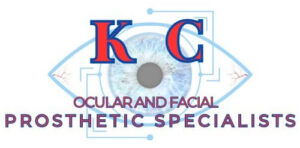
KC Ocular and Facial Prosthetics specialises in creating custom prosthetic eyes, noses, and ears. They use advanced techniques to take impressions and craft lifelike prosthetics from medical-grade materials.
Their services include polishing existing ocular prosthetics and offering home visits with portable equipment for added convenience.
They focus on restoring not just appearance, but also confidence and comfort for their patients. Evaluations and follow-ups ensure a perfect fit and ongoing satisfaction.
PlayVet

PlayVet is a company that specialises in creating custom 3D printed veterinary medical devices. They develop devices such as braces, casts, and prosthetics tailored to the specific needs of each animal patient.
These devices are designed by veterinarians to provide a perfect anatomical match, maximum comfort, and durability.
PlayVet’s products aim to improve the management and treatment of various conditions in pets, offering solutions for injuries, amputations, and other mobility-related issues.
BrainRobotics

BrainRobotics develops advanced upper limb prosthetics, leveraging brain/machine interface technology to enhance functionality, usability, and affordability.
Originating from Harvard Innovations Lab research in 2015, their prosthetic hand offers natural movements with a powered thumb and customisable grip access. BrainRobotics aims to make their myoelectric, multi-articulating prosthetic hands accessible to a wider audience, providing high-tech solutions without excessive costs.
Their products promise significant improvements in the quality of life for users worldwide.
